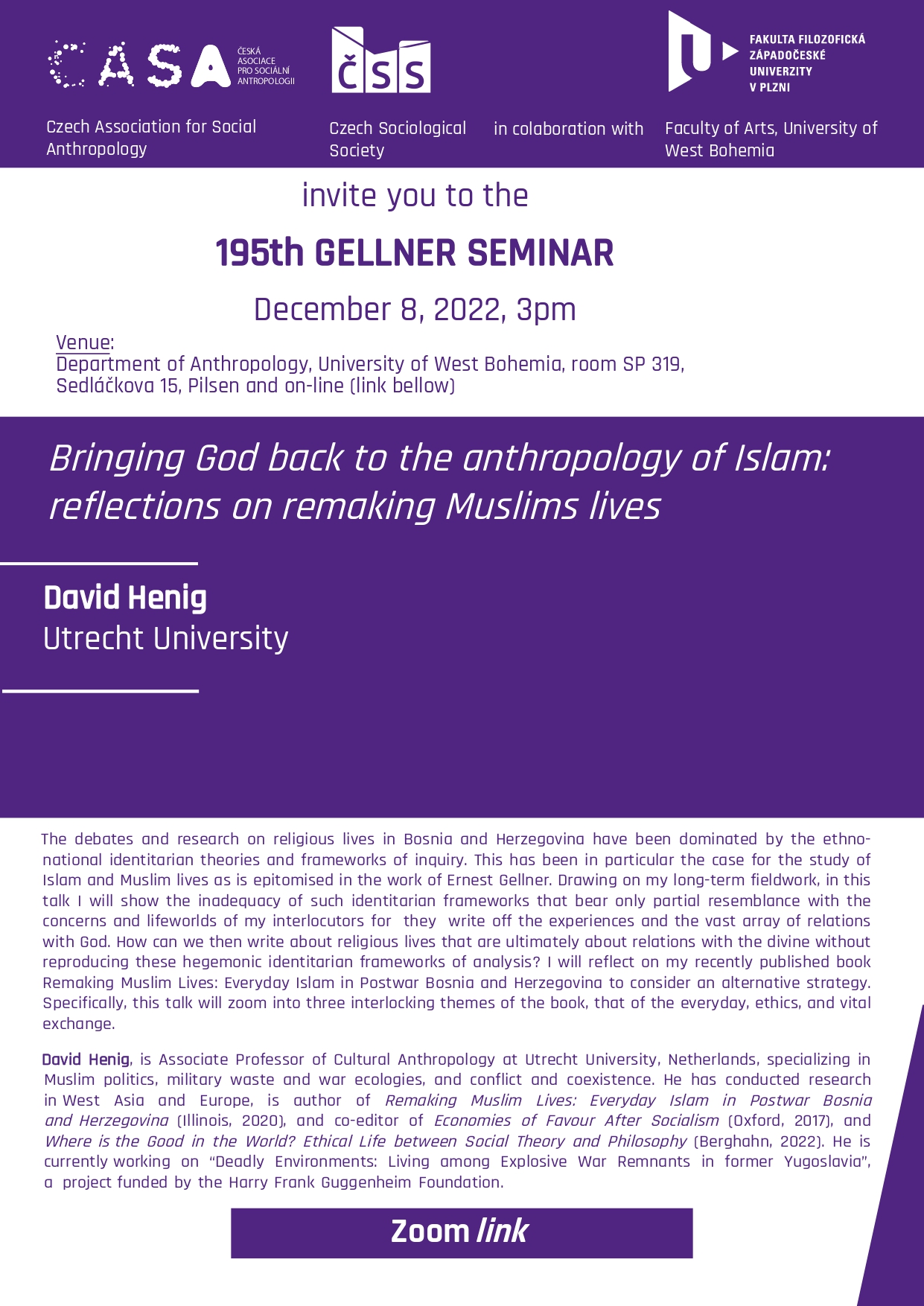
odkaz pro připojení přes Zoom naleznete v PDF souboru
Abstrakt
The debates and research on religious lives in Bosnia and Herzegovina have been dominated by the ethnonational identitarian theories and frameworks of inquiry. This has been in particular the case for the study of Islam and Muslim lives as is epitomised in the work of Ernest Gellner. Drawing on my long-term fieldwork, in this talk I will show the inadequacy of such identitarian frameworks that bear only partial resemblance with the concerns and lifeworlds of my interlocutors for they write off the experiences and the vast array of relations with God. How can we then write about religious lives that are ultimately about relations with the divine without reproducing these hegemonic identitarian frameworks of analysis? I will reflect on my recently published book Remaking Muslim Lives: Everyday Islam in Postwar Bosnia and Herzegovina to consider an alternative strategy. Specifically, this talk will zoom into three interlocking themes of the book, that of the everyday, ethics, and vital exchange.
Bio
David Henig, is Associate Professor of Cultural Anthropology at Utrecht University, Netherlands, specializing in Muslim politics, military waste and war ecologies, and conflict and coexistence. He has conducted research in West Asia and Europe, is author of Remaking Muslim Lives: Everyday Islam in Postwar Bosnia and Herzegovina (Illinois, 2020), and co-editor of Economies of Favour After Socialism (Oxford, 2017), and Where is the Good in the World? Ethical Life between Social Theory and Philosophy (Berghahn, 2022). He is currently working on “Deadly Environments: Living among Explosive War Remnants in former Yugoslavia”, a project funded by the Harry Frank Guggenheim Foundation.